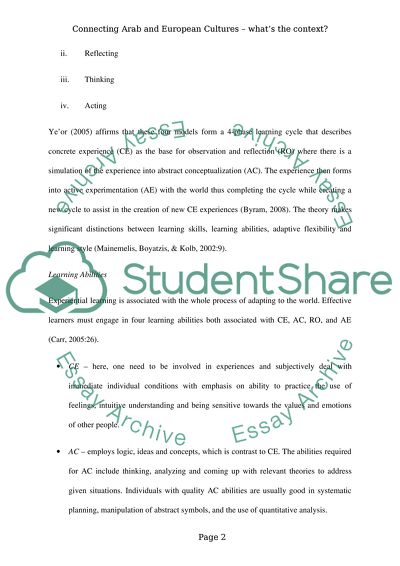Connecting Arab and European Cultures : what's the context Research Paper. Retrieved from https://studentshare.org/education/1457983-connecting-arab-and-european-cultures-yt-whatyies
Connecting Arab and European Cultures : what'S the Context Research Paper. https://studentshare.org/education/1457983-connecting-arab-and-european-cultures-yt-whatyies.


